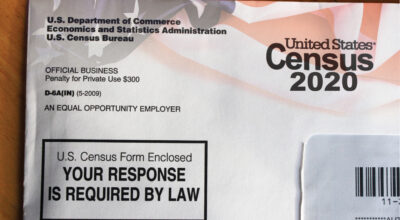
5 Claims and Responses: How States Can Unilaterally Secure the Border
Overview
As the ongoing humanitarian and security crisis continues unabated along the U.S. southern border, states are looking for new ways to take the lead to stop this invasion in lieu of both Washington’s inaction and willful negligence. Among the remedies available is the Constitution’s “self-help” provision for states to defend themselves from threats outside their respective territories. Below are various claims and responses made in consideration of whether states can bring an end to the crisis along the U.S. southern border:
Claim: Federal law is explicit that the responsibility for securing the U.S. border falls to the federal government. States attempting to secure the border do so without legal authority.
Response: The authority for states to secure the border does not rest on federal immigration law, but the Constitution’s war-making authorities that states retain in certain circumstances. Specifically, the Constitution provides a clear and firm foundation for states to act decisively should the federal government fail to uphold its obligations.
Among these obligations are those found in Article IV, Section 4, the “Guarantee Clause” of the Constitution. That clause specifies, “The United States shall guarantee to every State in this Union a Republican Form of Government, and shall protect each of them from Invasion; and on Application of the Legislature, or of the Executive (when the Legislature cannot be convened) against domestic violence.”
The guarantee against invasion is unconditional and fundamental, extending to all forms of invasion. The federal government is currently in violation of its duties under the Guarantee Clause. Therefore, states are currently within their rights to act using their Article I authority – not immigration authority – to defend themselves.
Claim: The Constitution does not list border security in the list of authorities states may employ in certain circumstances under Article I.
Response: Article I, Section 10, Clause 3 explicitly permits state war powers to be exercised if a state is invaded. The clause says, “No State shall, without the Consent of Congress, lay any Duty of Tonnage, keep Troops, or Ships of War in time of Peace, enter into any Agreement or Compact with another State, or with a foreign Power, or engage in War, unless actually invaded, or in such imminent Danger as will not admit delay.”
There is no limitation within the text of what constitutes an “invasion.” The Framers were keenly aware that the threats to the states were not limited to foreign armies from Great Britain or Spain, but also “some nation of Indians,” “pirates,” and other external lawless groups intent on inflicting harm or seeking their own ends at the expense of Americans. Therefore, the original meaning of the word “invasion” contained in Article IV, Section 4 of the Constitution encompasses all such external threats to the safety, security, or well-being of the states and their citizens.
Claim: The mere migration of many destitute immigrants does not constitute an invasion, and the assertion that it does is simply designed to invoke these authorities.
Response: Over two million illegal immigrants were apprehended at the southern border last year, with over another half a million escaping apprehension. Border agents seized enough fentanyl to potentially kill 2.5 billion people. These sophisticated human smuggling and drug trafficking efforts are spearheaded by violent international drug cartels with operational control over our southern border. The external threat to the states posed by the invasion of people, drugs, and crime, facilitated by these deadly organizations, is both an imminent and ongoing danger.
Claim: There is no case law regarding the invasion question. States attempting to utilize this provision to act unilaterally to secure the border are doing so without legal precedent.
Response: It is true that there is no existing case law with regard to the invasion question of the “Guarantee Clause.” However, there is a Supreme Court case from 1849 (Luther v. Borden) that deals specifically with the republican form of government provision within Article IV, Section 4 of the Constitution.
The Supreme Court in Luther held the matter non-justiciable as an inherently political question. In other words, applying the Luther case holding to the invasion provision of the Guarantee Clause leads to the conclusion that states themselves maintain the discretion to determine whether or not they are being invaded.
Claim: Returning illegal border crossers back into Mexico under state war-powers authority creates a potential diplomatic conflict between state governments and Mexico. Such action risks an international incident.
Response: Although utilizing a different set of legal authorities under Section 265 of Title 42 in the U.S. Code, the federal government during the COVID pandemic returned illegal aliens directly to Mexico in a similar manner to the process envisioned under this plan. This logistical process was aggressively utilized during the Trump Administration and did not result in a diplomatic incident. That being said, even if Mexico objects to the exercise of this authority insofar as illegal aliens being put back into Mexico, Mexico has the capacity to stop the current invasion on its side of the border; however, in the absence of a commitment to the same goal by the U.S. Government, Mexico has so far proven unwilling to take the necessary steps to secure its border. States effectively forcing the issue will require both the U.S. and Mexican federal governments in turn to address the issue themselves, or simply complain about a state conducting its own self-help.



